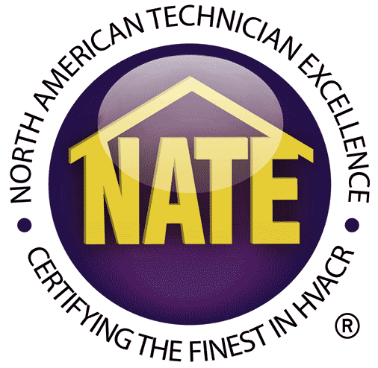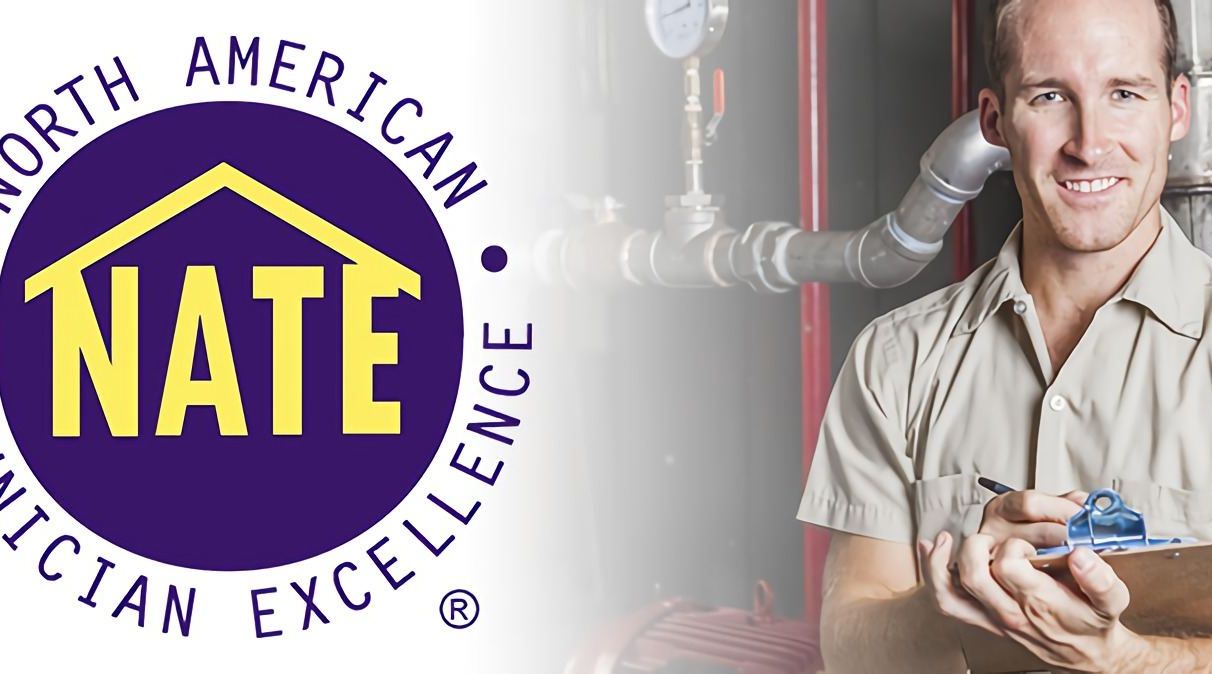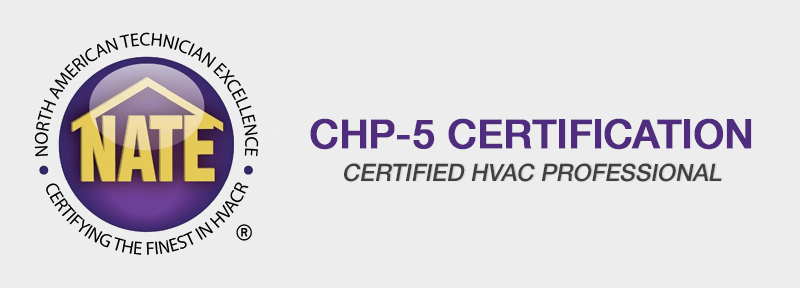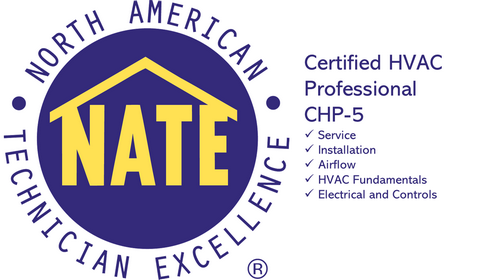Are you looking to advance your career in the HVAC industry? Look no further than NATE certification, a widely recognized and respected credential that demonstrates your expertise and commitment to excellence. With NATE Certification, you can enhance your knowledge and skills in heating, ventilation, and air conditioning systems, positioning yourself as a top-tier professional in the field. Whether you’re a technician, installer, or service professional, NATE Certification opens doors to new career opportunities and showcases your dedication to providing top-notch HVAC services. Join the ranks of industry leaders and take your career to new heights with NATE Certification. Reach out to Diamond Air Design, a trusted provider of HVAC repair and services, to get started on your journey towards success.
NATE Certification: Advancing HVAC Excellence
Overview of industry certifications
What are industry certifications?
industry certifications are professional credentials that validate the knowledge and skills of individuals working in a specific industry. These certifications are awarded by reputable organizations and serve as a measure of an individual’s competence in their field. In the heating, ventilation, and air conditioning (HVAC) industry, certifications are highly regarded and can significantly enhance one’s career prospects.
Importance of industry certifications in HVAC
In the HVAC industry, industry certifications hold immense importance. Due to the complex nature of HVAC systems and the critical role they play in maintaining indoor comfort, it is crucial for professionals to possess the necessary knowledge and skills to ensure the proper installation, maintenance, and repair of these systems. Industry certifications provide employers and clients with reassurance that the certified individual possesses the expertise required to perform their job at a high level of quality and competence.
Different types of industry certifications
There are several industry certifications available in the HVAC field, each focusing on different aspects of the profession. Two of the most recognized certifications in the industry are the North American Technician Excellence (NATE) certification and the HVAC Excellence certification. Let’s explore the details of the NATE certification and what sets it apart from other certifications.

This image is property of examprep.org.
NATE Certification
What is NATE certification?
The North American Technician Excellence (NATE) certification is a widely recognized and respected credential for HVAC professionals. It is designed to validate the knowledge and skills of technicians working in the HVAC industry. NATE-certified technicians are considered experts in their field and have demonstrated their proficiency in various areas of HVAC technology through rigorous testing.
NATE certification levels
The NATE certification program offers multiple levels of certification, catering to technicians at different stages of their careers. The levels of NATE certification include:
Entry-Level Technician: This level is for individuals who are new to the HVAC industry and have less than two years of professional experience.
Ready-to-Work Technician: This level is for technicians who have completed formal HVAC training programs but have not yet gained sufficient work experience.
Experienced Technician: This level is for technicians who have a minimum of two years of professional experience in the HVAC industry.
Senior-Level Technician: This level is for technicians who have extensive experience and expertise in the HVAC field, typically with at least five years of experience.
Benefits of NATE certification
Obtaining NATE certification comes with several benefits for HVAC professionals. Some of the key advantages include:
Enhanced professional credibility: NATE certification demonstrates a technician’s commitment to excellence and expertise in their field. It provides employers and clients with confidence in the technician’s abilities, leading to enhanced professional credibility.
Increased job opportunities: Many employers in the HVAC industry prefer hiring NATE-certified technicians due to their demonstrated proficiency. Holding a NATE certification opens up more job opportunities and increases the chances of career advancement.
Higher earning potential: With NATE certification, HVAC technicians often command higher salaries compared to their non-certified counterparts. Employers recognize the value of certified technicians and are willing to compensate them accordingly.
Requirements for NATE Certification
Educational requirements
To become NATE-certified, individuals must have a high school diploma or equivalent. While formal education is not a strict requirement, it is highly recommended for individuals to complete HVAC training programs offered by reputable institutions. These programs provide comprehensive knowledge and skill development crucial for success in the HVAC industry.
Work experience requirements
NATE certification has varying work experience requirements depending on the certification level being pursued. Entry-level technicians do not require any specific work experience, while ready-to-work technicians need to complete an HVAC training program. Experienced and senior-level technicians must have a minimum of two years and five years of relevant work experience, respectively, to be eligible for certification.
Passing the NATE exams
To earn NATE certification, candidates must pass the relevant NATE exams. These exams are comprehensive and cover various aspects of HVAC technology. The exams consist of both core exams and specialty exams, each focusing on different areas of expertise within the HVAC industry.

This image is property of www.precisionhvac.com.
NATE Exam Categories
Core exams
Core exams in the NATE certification program cover fundamental concepts and knowledge required for all HVAC technicians. These exams assess a technician’s understanding of topics such as electrical systems, HVAC systems, safety practices, and customer service. Passing the core exams is a prerequisite for taking specialty exams.
Specialty exams
Specialty exams in the NATE certification program allow technicians to demonstrate their expertise in specific areas of HVAC technology. There are several specialty exams available, including air conditioning, air distribution, heat pumps, gas heating, oil heating, and hydronics. Technicians can choose the specialty exams that align with their particular skills and interests.
Preparing for NATE Exams
Study resources and materials
To prepare for NATE exams, candidates can utilize a variety of study resources and materials. NATE provides study guides, practice tests, and reference materials on their official website. Additionally, there are numerous books, online courses, and study materials available from reputable publishers and educational institutions. Creating a study plan and dedicating sufficient time to review and practice is crucial for success in NATE exams.
Training programs
Formal HVAC training programs offered by vocational schools, trade associations, and technical colleges can greatly enhance a technician’s knowledge and skills for NATE certification. These programs cover the curriculum recommended by NATE and provide hands-on training to ensure practical application of theoretical concepts. Attending training programs is highly recommended for both novice and experienced technicians.
Practice exams
Taking practice exams is an effective way to assess one’s preparedness for the NATE exams. These practice exams simulate the format and difficulty level of the actual exams and help identify areas of improvement. NATE offers online practice exams that can be purchased, and there are also third-party providers offering practice exams specifically designed for NATE certification.

This image is property of www.rsi.edu.
NATE Certification Process
Registering for the exams
To pursue NATE certification, individuals need to register for the exams through the official NATE website or authorized testing centers. The registration process typically involves providing personal information, selecting the desired certification level and specialty exams, and paying the required fees. Once registered, candidates will receive further instructions regarding exam scheduling and preparation.
Taking the exams
NATE exams are conducted at authorized testing centers. The exams are typically computer-based and consist of multiple-choice questions, designed to assess a technician’s knowledge, problem-solving abilities, and understanding of practical applications. It is essential to arrive at the testing center on time, well-prepared, and with the necessary identification documents.
Receiving certification
After successfully passing the required NATE exams, candidates will receive their NATE certification. The certification is valid for five years and signifies the technician’s competency in their respective certification levels and specialty areas. NATE-certified technicians can proudly display their certification badges and use the credentials to advance their careers.
NATE Certification Renewal
Renewal requirements
NATE certifications are valid for a period of five years. To maintain the validity of their certifications, technicians must fulfill certain renewal requirements. These requirements may include completing a specific number of continuing education hours, obtaining manufacturer-specific training, and paying the renewal fees. By meeting the renewal requirements, technicians ensure their knowledge and skills remain up to date with the latest developments in the HVAC industry.
Continuing education
Continuing education is an integral part of maintaining NATE certifications. It allows technicians to stay abreast of advancements in technology, industry standards, and best practices. NATE requires technicians to complete a certain number of continuing education hours to qualify for certification renewal. These hours can be earned through attending workshops, seminars, online courses, or other recognized educational activities.
Recertification process
To renew their NATE certifications, technicians need to follow the recertification process outlined by NATE. The recertification process may involve submitting the required renewal documentation, providing proof of continuing education, and paying the renewal fees. By successfully completing the recertification process, technicians ensure that their NATE certifications remain current and reflect their ongoing commitment to excellence.

This image is property of www.ac-heatingconnect.com.
Benefits of NATE Certification
Enhanced professional credibility
NATE certification greatly enhances the professional credibility of HVAC technicians. Employers, clients, and peers recognize NATE-certified technicians as experts in their field, capable of delivering superior services. Holding a NATE certification demonstrates a technician’s dedication to professionalism, continuous learning, and commitment to providing quality work.
Increased job opportunities
With the HVAC industry becoming increasingly competitive, having a NATE certification gives technicians a competitive edge when seeking job opportunities. Many employers prioritize hiring NATE-certified technicians due to their proven expertise and competence. Holding a NATE certification opens doors to a broader range of job openings, including positions with higher responsibility and better pay.
Higher earning potential
NATE-certified technicians often enjoy better job prospects and higher earning potential compared to their non-certified counterparts. Employers value the specialized skills and knowledge that come with NATE certification, and as a result, are willing to offer higher salaries to certified professionals. The investment made in acquiring a NATE certification can quickly pay off in the form of increased earning potential throughout a technician’s career.
Comparison to HVAC Excellence Certification
Differences between NATE and HVAC Excellence certifications
While both NATE and HVAC Excellence certifications hold significant value in the HVAC industry, there are some notable differences between the two.
Recognition: NATE certification is more widely recognized throughout the industry and is often regarded as the gold standard for HVAC certifications. HVAC Excellence certification, on the other hand, is highly regarded but may not have the same level of universal recognition.
Focus: NATE certification covers a broad range of HVAC topics and offers multiple certification levels and specialties. HVAC Excellence certification focuses more on specific areas of expertise, such as residential air conditioning or commercial refrigeration.
Exams: NATE exams are known for their rigor and comprehensive coverage of HVAC knowledge and skills. HVAC Excellence exams also assess these areas but may have a slightly different approach to examination.
Choosing the right certification
When deciding between NATE and HVAC Excellence certifications, it is important to consider your career goals, areas of interest, and industry recognition. If you are looking for a highly recognized certification that covers various aspects of the HVAC field, NATE certification may be the ideal choice. On the other hand, if you have a specific interest or expertise in a particular area of HVAC technology, HVAC Excellence certification could be a better fit. Ultimately, it is essential to research both certifications and determine which aligns best with your career aspirations.

This image is property of natecertifications.com.
The post NATE Certification: Advancing HVAC Excellence appeared first on Diamond Air Design.

